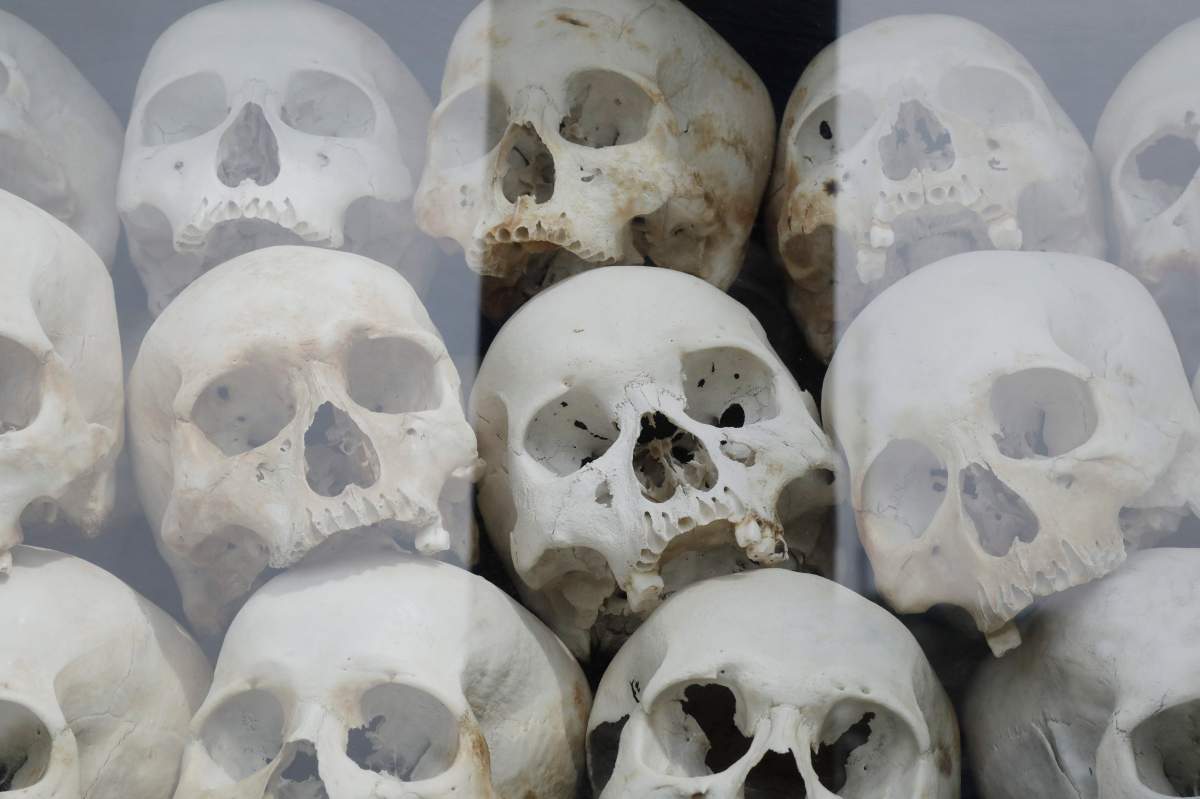It’s been almost four decades since the Khmer Rouge were in power in Cambodia, reigning with a ruthlessness that left as many as 1.7 million people dead.

On Friday, an international tribunal in the capital Phnom Penh decided that the party had committed genocide during its reign from 1975 to 1979.
Coverage of Cambodia on Globalnews.ca:
The Phnom Penh Post tweeted early Friday local time that the Khmer Rouge Tribunal found that the party carried out genocide against Vietnamese and Muslim Cham people while it was in power.
The tribunal also found guilty of genocide, two men who are the surviving leaders of the Khmer Rouge: 92-year-old Nuon Chea, who was second to Pol Pot in its chain of command, and 87-year-old Khieu Samphan, who was head of state.

Get breaking National news
The two have already been serving life sentences for crimes against humanity; now, they’re expected to face additional sentences, The Guardian reported.
READ MORE: First Cambodia genocide trial aims to expose crimes
With the Khmer Rouge in power, nearly 2 million were killed due to overwork, starvation or execution, or were even tortured as the party looked to build an agrarian society.
Under the leadership of Saloth Sar, also known as Pol Pot, they did this by declaring “Year Zero” and forcing people to work in rural co-operatives, as described by BBC News.
People were killed for showing foreign influences, such as speaking French or enjoying ballet, The New York Times reported.
Chea and Samphan were convicted in a court known as the Khmer Rouge Tribunal in the Extraordinary Chambers in the Courts of Cambodia (ECCC), a special body that was established in 2006 with the aim of prosecuting crimes that took place during the party’s reign.
The tribunal has convicted three people. They include Kaing Guek Eavk, known as “Duch,” for his role overseeing the Toul Sleng torture centre, BBC News recounted.
Chea and Samphan were previously convicted for crimes against humanity in a separate trial that took place in 2014.
The tribunal proved controversial over the years — Cambodian Prime Minister Hun Sen, a former Khmer Rouge member, has openly opposed its creation and argued that further trials could inch the country closer to civil war, according to The Guardian.
Others have criticized its slow pace.
It has its defenders, however — like Ly Sok Kheang, who heads the Anlong Veng Peace Center, which works to promote reconciliation in Cambodia.
“We need to show the world that even if it takes a long time, we can deliver justice,” Kheang told the New York Times.
- Greenland, Denmark ‘continue to differ’ with U.S. after White House meeting
- Trump giving middle finger to heckler an ‘appropriate’ response, White House says
- Group of DOJ lawyers quit amid fallout of Renee Good killing in Minneapolis
- Germany among NATO members sending troops to Greenland for Arctic mission












Comments